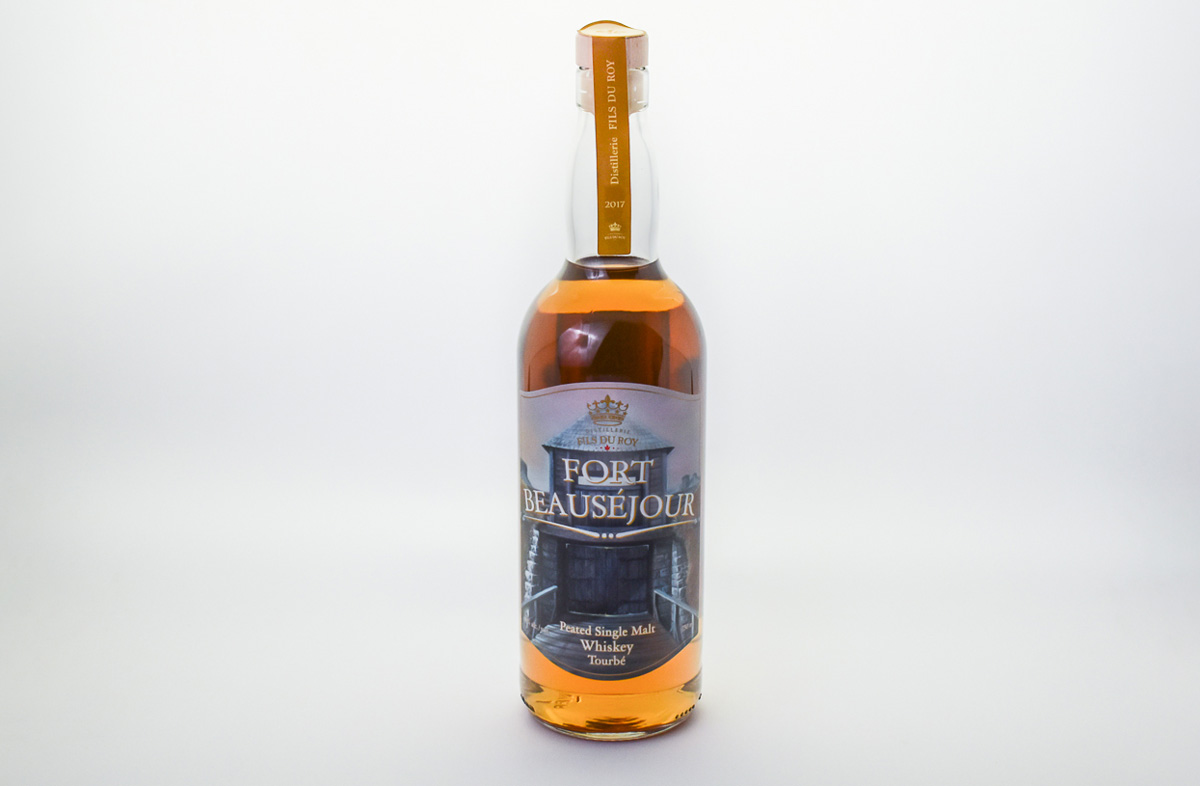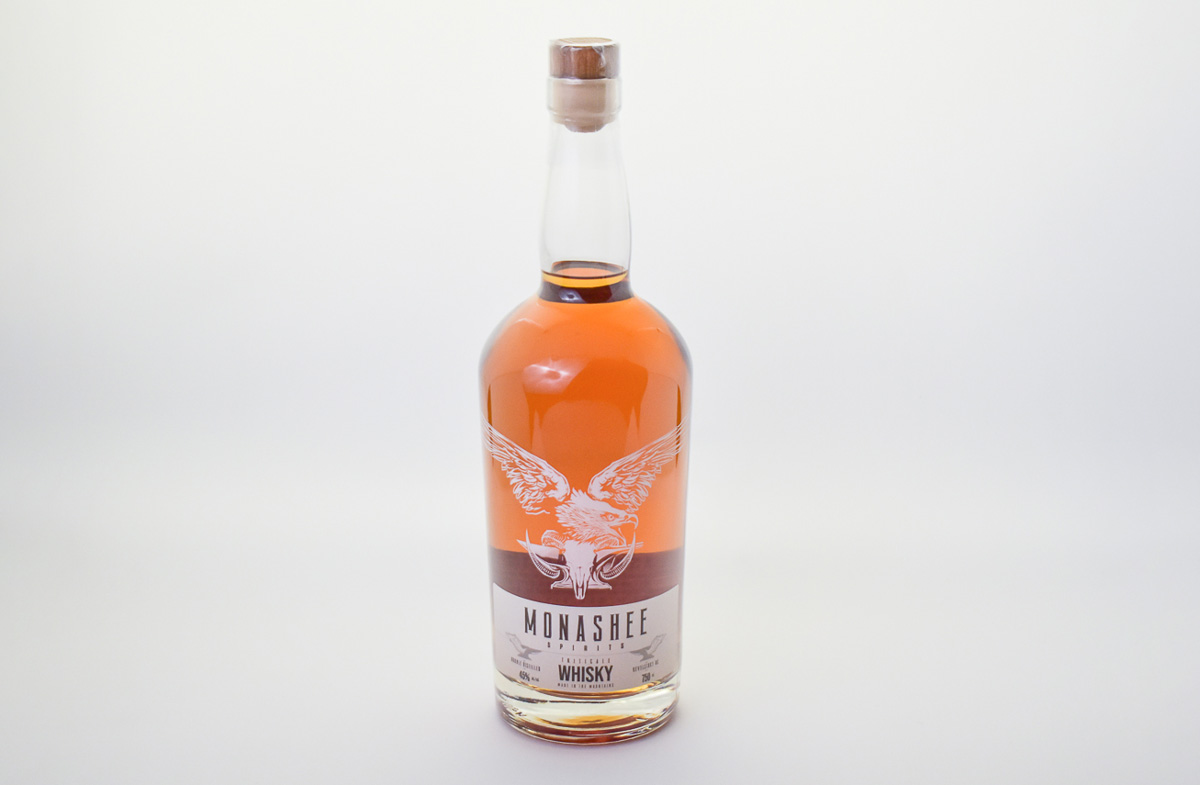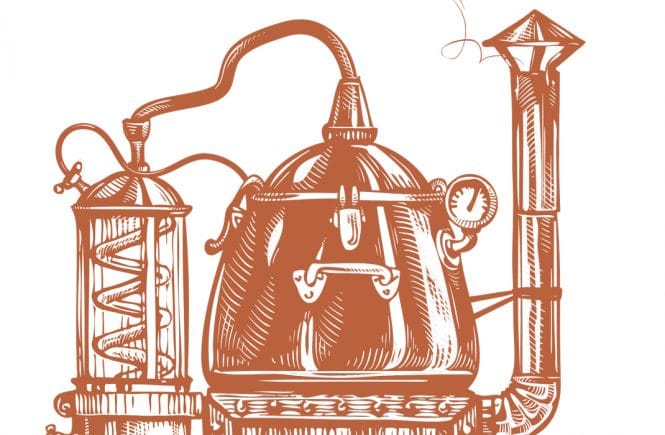For the first time in the competition’s six-year history, a whisky wins the Canadian Artisan Spirit of the Year.

Fort Beauséjour Peated Single Malt Whisky from Distillerie Fils de Roy in Petit-Paquetville, on New Brunswick’s Acadian coast, achieved the highest score of any spirit entered in the Canadian Artisan Spirit Competition (CASC) this year. It is the the 2023 Canadian Artisan Spirit of the Year and the first Canadian Whisky to win the award. “We’re thrilled that our eastern artisan distilleries are receiving some well-deserved praise,” CASC founder Alex Hamer said in a news release.
Family owned with matriarch Diane Roy, the distillery became New Brunswick’s first of the artisanal wave when it opened in September 2012, and today has its own Maison, under which it does maltings and cultivates yeast strains, working towards achieving a vision of truly artisanal production at all stages. (Sibling Jonathan Roy runs a second distillery in Saint-Arsène, in Quebec’s Bas-St-Laurent region, under the Champ Gauche brand.)
The Fort Beauséjour bottling, distilled in 2018, is uniquely Acadian: its local barley was malted using peat from the distillery’s own property, which has acres of the stuff. “We prefer the flavour of this surface peat over the earthier peat deeper down for this single pot still whisky,” founder Sebastien Roy told Whisky magazine. A self-trained brewer, Roy recounted to Forbes that the Battle of Fort Beauséjour in 1775 exiled Acadians from their traditional land, a history that has inspire him to “fight to preserve their culture, their language, their traditions … Our small distillery in New Brunswick promotes the stories of the Acadian people.” In a prophetic Facebook Watch video from the release of the 500-bottle batch of Fort Beauséjour whisky, in December 2021, Roy enthusiastically says: “We’re quite impressed with how it tastes!”
As (full disclosure), the lead judge of CASC I blind-tasted and described the whisky as having, “ashy char/smoke notes on a vegetal, herbaceous nose,” plus “smoke, apple and juicy citrus on the palate, with creamy vanilla on the mid-palate,” and a “peppery and lively” finish.
It’s shaping up to be a banner year for Canadian craft whisky. Consider that a rye whisky from North Vancouver artisan distillery Sons of Vancouver recently took top prize at the 2023 Canadian Whisky Awards. In recent weeks a single malt whisky from Shelter Point Distillery in Campbell River also became the first Canadian bottling included in the prestigious Scotch Malt Whisky Society.

B.C. added to craft whisky’s shine this year, with Monashee Spirits in Revelstoke winning best Single Grain Whisky for its Triticale (a hybrid wheat-rye grain) Whisky. DEVINE Spirits Ancient Grains, the 2022 Canadian Artisan Spirit of the Year, won best Young Whisky (so classified because it matures for less than the three years required by Canadian law to be labelled Canadian whisky) for the fifth year in a row.
Other B.C. Best in Class winners included DEVINE in the Alternative Rum category for its honey-based Black Bear Spiced Honey Shine; Fernie Distillers in the Classic Gin category, for its Forager Spruce Tip Gin; Tumbleweed Spirits in Osoyoos in the Classic Vodka category for its Tumbleweed Vodka; Duncan’s Stillhead Distillery in the Contemporary Vodka category for its Van Isle Vodka; in the Fruit Liqueur category Alchemist Distiller in Summerland for its Nectar Apple Liqueur; North Van’s The Woods Spirit Co. for its Nocino as best Liqueur; and Wynndel Craft Distilleries for its Copperhead Shine as best White Spirit. Vernon’s Okanagan Spirits had the Best in Class Amaro or Vermouth for its Amaro Classico and Bottled Cocktail, for its Orchard Negroni, featuring the distillery’s apple-based Family Reserve Gin, Cranberry Liqueur and bitters, all made from B.C. fruit.
See the full results here. The annual Canadian Artisan Spirit Competition was founded in 2017 by Artisan Distillers Canada to recognize the best of Canadian artisan distilling. Distilleries must meet ADC qualifications (view here) to participate in the competition.
—by Charlene Rooke




